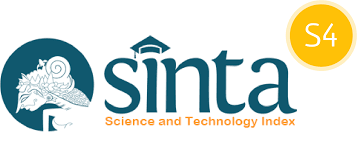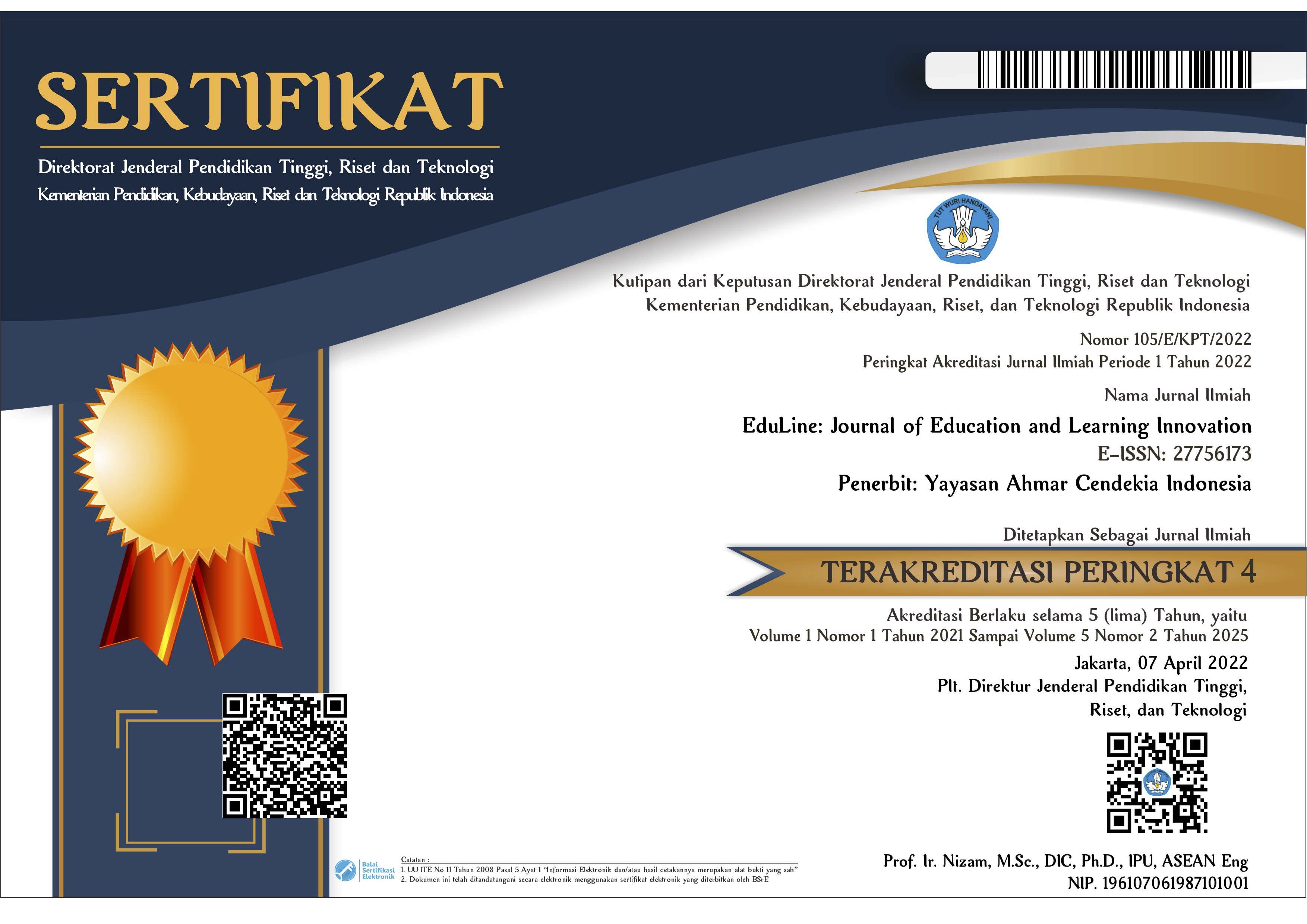Teachers Quality and Business Education Students Entreprenuerial Skills Development in Public Universities in South West, Nigeria
 Viewed = 0 time(s)
Viewed = 0 time(s)
Abstract
This study examined the impact of teacher quality on Business Education students’ entrepreneurship skills development in public universities in Southwest, Nigeria. The study examined the extent to which teacher quality has helped to build students entrepreneurship skills. Two hypotheses were formulated and tested at 0.05 level of significance. Descriptive survey research design method was adopted for the study. The population of the study was 100 to 400 level Business Education students from 11 public universities in Southwest offering Business Education as a course of study and multi-stage sampling technique was adopted to draw the sample size. Firstly, simple random sampling technique was adopted to select four universities from the population of study while purposive sampling technique was used to draw the sample size of 400 participants from the population. A four rating structured online questionnaire titled “Teacher Quality and Business Education Students Entrepreneurial Skills Development Questionnaire” (TQBESESDQ) was employed to gather data for the study. Person Product Moment Correlation (r) was used to test the hypotheses. Results from the findings revealed among others that instructional methods adopted by teachers have a great effect on the development of students’ entrepreneurship skills. Based on the findings, the study recommended that instructional methods adopted by teachers should be tailored towards improving self-reliance skills of students, teachers should be constantly trained and more qualified teachers should be employed in order to meet students’ needs.
References
Alharbi, J., Almahdi, H., & Mosbah, A. (2018). The impact of entrepreneurship education programs (EEPs) on the entrepreneurial attitudes among higher education students. International Journal of Management, Economics and Social Sciences, 7(3), 245 – 271. https://doi.org/10.32327/IJMESS.7.3.2018.16
Arasti Z, Kiani F. M, Imanipour N. (2012). A Study of Teaching Methods in Entrepreneurship Education for Graduate Students. Higher Education Studies. 2(1): 2–10. .
Barakabo, E. (2017). Teaching Entrepreneurship Education through Business Education: The Challenges and Prospects. International Journal of Innovative Social & Science Education Research 5(1):48-55
Day, C. (2021). Developing, Sustaining and Retaining Teacher Quality: Factors That Count. In: Zhu, X.,
Ibikunle, G. A., Orefuwa, E. R., & Mafo, A. B. (2019). Analysis of the Causes and Effects of Unemployment in Nigeria towards a Solution for Graduate Idleness and Poverty Alleviation IOSR Journal of Humanities and Social Science (IOSR-JHSS) 24(2): 36-44 https://scholar.google.com/scholar?oi=bibs&cluster=14583768983438986032&btnI=1&hl=en
Junior, A. (2012). Entrepreneurs are made not born. Annual report. https://www.juniorachievement.org/documents/20009/20682/JuniorþAchievementþAnnualþ Report þ2012/145bd88a-595f-409a-b658-821c9a1f5480.
Heinonen, J. (2007). An entrepreneurial-directed approach to teaching corporate entrepreneurship at university level. Education and Training, 49(4), 310–324. doi:10.1108/ 00400910710754453
Küttim, M., Kallaste, K., Venesaar, U. & Kiis, A. (2014). Entrepreneurship education at university level and students‟ entrepreneurial intentions. Procedia - Social and Behavioral Sciences 110,658-668. DOI: 10.1016/j.sbspro.2013.12.910
Okoli, B. E. (2010). Business education reforms: A key to achievement of millennium development goal of eradication of poverty in Nigeria by 2015. International technology research journal 1(1), 8–11.
Ore, E. R. (2022). Effectiveness of Business Education Programme on the Employability Skills of Business Education Students in Public Universities in Lagos State, Nigeria. Unpublished Research Work. Retrieved from: https://www.researchgate.net/publication/359279162_Effectiveness_of_Business_Education_Programme_on_the_Employability_Skills_of_Business_Education_Graduate_in_Public_Universities_in_Lagos_State_Nigeria/ April 11th, 2022
Ore, E. R. & Hassan, A. M. (2023). Business Education Curriculum Content and Entrepreneurial Skills Development of Business Education Students in Public Universities in Lagos State, Nigeria, EduLine: Journal of Education and Learning Innovation, 3 (3): 437–443 https://sainsmat.org/index.php/eduline/article/download/1878/1272
Oyelola, O.T. (2013). Embedding entrepreneurship education in to curriculum: A case study of Yaba College of technology, Centre for Entrepreneurship Development. The 1st International Africa Enterprise Educators Conference, Lagos: Nigeria; 2013 January.
Potter, J. (2008). Entrepreneurship and Higher Education: Future Policy Directions (OECD) Education & skills; 18:313–35.
Pierce, J. J., Siddiki, S., Jones, M. D., Schumacher, K., Pattison, A., & Peterson, H. (2014). Social construction and policy design: A review of past applications. Policy Studies Journal, 42(1), 1-29. https://doi.org/10.1111/psj.12040
Rahimi H. (2014). Relationship between Entrepreneurship Traits and Learning Organization Dimensions; Kashan University. Bimonthly of Education Strategies in Medical Sciences. ; 7 (3): 127–33.
Salami, C.G.E. (2011). Entrepreneurship Interventionism and Challenges of Youth Unemployment in Nigeria. Global Journal of Management and Business Research 11(7):1-8
Sikka, A., Nath, L., & Chen, D. (2007). Practicing teachers’ beliefs and uses of assessment. International Journal of Case Method Research and Application, XIX (3), 239–253.
Sherine, B., Sameh, R., Reem, K., Allam, H., & Abdalmuttaleb, M.A.(2018). Business education and entrepreneurial skills: Evidence from Arab universities Journal of Education for Business 1(1) 1-10 https://doi.org/10.1080/08832323.2018.1534799
Song, H. (eds) Envisioning Teaching and Learning of Teachers for Excellence and Equity in Education. Perspectives on Rethinking and Reforming Education. Springer, Singapore. https://doi.org/10.1007/978-981-16-2802-3_11 171-187
Strong, M. (2011). "The Highly Qualified Teacher: What Is Teacher Quality and How Do We Measure It?", Teachers College, Columbia University. visit http://store.tcpress.com/0807752258.shtml
Ugwunwoti, E. P. & Okorojiofor, C. G. (2017). Strategies for Enhancing Entrepreneurial Education Among Business Education Students in Tertiary Institutions in Enugu State, Nigeria. Journal of Research in Science and Technology, 7(1), 17-26
Copyright (c) 2025 Elizabeth Remilekun Ore, Victoria O. Sofolahan, Pedetin Rebecca Owodunni

This work is licensed under a Creative Commons Attribution-NonCommercial-ShareAlike 4.0 International License.

 https://doi.org/10.35877/454RI.eduline2462
https://doi.org/10.35877/454RI.eduline2462








